Leadership Team
Learn about the research team leading the BOTTLE™ consortium's efforts.
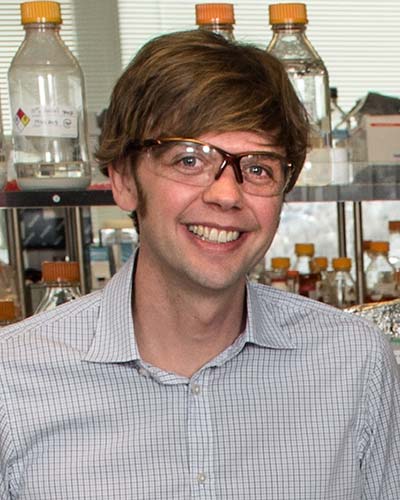
Gregg Beckham, Ph.D.
CEO of BOTTLE
Senior Research Fellow and Group Leader
National Laboratory of the Rockies (NLR)
Beckham received his Ph.D. in chemical engineering at the Massachusetts Institute of Technology in 2007. He currently leads and works with an interdisciplinary team of biologists, chemists, and engineers at NLR on bioprocesses and bioproducts using chemistry and biology, including in the areas of biomass conversion and plastics upcycling. He is the founder of two Gordon Research Conferences, including one on lignin and the other on plastics recycling and upcycling, and a co-organizer of the Chemical Sciences Roundtable of the National Academies of Sciences, Engineering, and Medicine meeting on "Closing the Loop on the Plastics Dilemma." He was elected to the National Academy of Engineering in 2025. In BOTTLE, Beckham’s team will apply their expertise in chemical catalysis, material science, synthetic biology, separations, analytics, and characterization to conduct research and development toward plastics deconstruction, upcycling, and redesign.
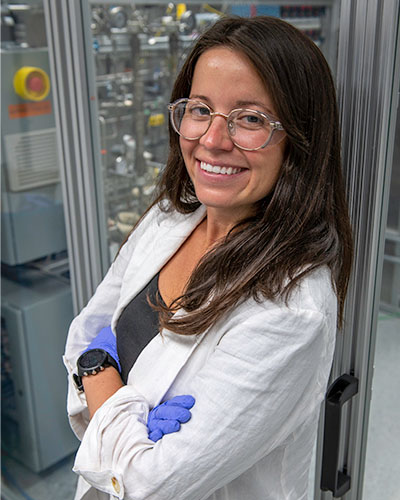
Kat Knauer, Ph.D.
CTO of BOTTLE
Senior Researcher
National Laboratory of the Rockies
Knauer is a polymer scientist who has dedicated her scientific career to solving the plastic waste problem. She has a Ph.D. in polymer science and engineering from the University of Southern Mississippi and completed the BASF Ph.D. Leadership Development Program in 2018 before taking a senior scientist role in BASF's Plastics Division. Her research efforts focused on advanced recycling technologies, which ultimately led her to leading Materials Innovation R&D at Novoloop, a chemical recycling startup. In 2022, Knauer joined NLR as the chief technology officer of BOTTLE. In BOTTLE, Knauer applies her industrial research background to developing strategic partnerships with companies across the plastics supply chain and leading applied research projects in plastic deconstruction, upcycling, and redesign.
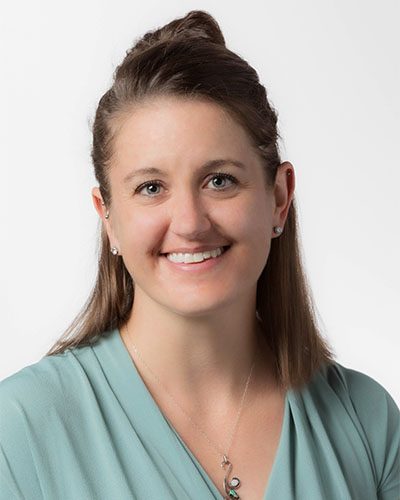
Michelle Reed
COO of BOTTLE
Project Manager
National Laboratory of the Rockies
Reed graduated from Adams State University in 2008 with a B.S in chemistry. She started her career at NLR as an analytical chemistry technician and, in addition to project management, has also worked as the financial analyst for NLR's Bioenergy Technologies Office project portfolio. Reed has been the project manager of the BOTTLE consortium since project inception. She was a key leader in the development of the BOTTLE management and research structure. In BOTTLE, her current roles include management of subcontracts, strategic partnership projects, budgets, and consortium deliverables.
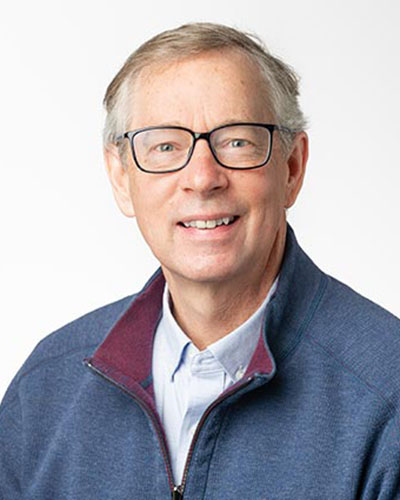
Bob Allen, Ph.D.
Senior Research Fellow
National Laboratory of the Rockies
Allen is a polymer chemist with a research focus on new high-performing materials, polymerization, and recycling process technology. He received his Ph.D. in Polymer Chemistry from Virginia Tech and enjoyed a long industrial career at IBM where he worked at the interface of polymer science and advanced electronics technology. He is a member of the National Academy of Engineering and a fellow of the ACS Polymer Division and SPIE – The International Society for Optical Engineering for his work on polymers for 193 nm lithography. He has extensive experience in management, industrial collaboration, and in intellectual property (IP) development. In BOTTLE, he works on basic and applied research in new recycling technologies.
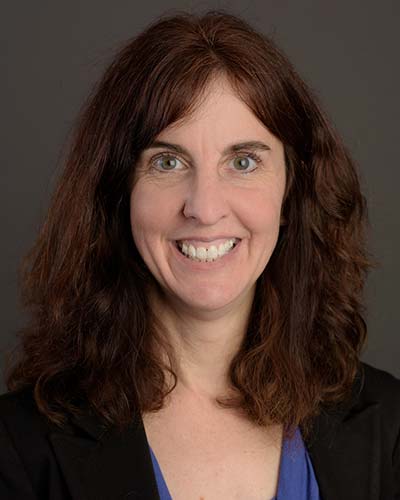
Linda Broadbelt, Ph.D.
Sarah Rebecca Roland Professor and Associate Dean for Research, Engineering
Northwestern University
Broadbelt's research and teaching interests are in multiscale modeling, complex kinetics modeling, catalysis, novel biochemical pathways, and polymerization/depolymerization kinetics. She is currently an Associate Editor for Industrial & Engineering Chemistry Research. Her honors include selection as the winner of the R.H. Wilhelm Award in Chemical Reaction Engineering from the American Institute of Chemical Engineers (AIChE), the E.V. Murphree Award in Industrial Chemistry and Engineering from the American Chemical Society, the Dorothy Ann and Clarence Ver Steeg Award, a CAREER Award from the National Science Foundation, an AIChE Women's Initiative Committee Mentorship Excellence Award, a Fellow of the American Association for the Advancement of Science, a Fellow of AIChE, a Fellow of the American Institute for Medical and Biological Engineering, and a Fulbright Distinguished Scholar. She was elected to the National Academy of Engineering in 2019. In BOTTLE, Broadbelt's team will work with consortium members to develop a computational pipeline to predict bio-based, recyclable-by-design polymers.

Birdie Carpenter, Ph.D.
Senior Engineer
National Laboratory of the Rockies
Carpenter is a member of the Resources and Sustainability Group in the Strategic Energy Analysis Center at NLR. She leads NLR’s efforts for strategic analysis for the U.S. Department of Energy’s Advanced Materials and Manufacturing Technologies Office. Carpenter also manages the team that developed and runs the Materials Flow through Industry tool. This tool provides supply chain impact analysis of the manufacturing sector, offering insight into energy and carbon hotspots within industrial supply chains and the impacts associated with implementing energy reductions strategies. In BOTTLE, Carpenter's team will work across all the mission-driven tasks to conduct rigorous analyses, which will guide and shape the scientific direction of the consortium.
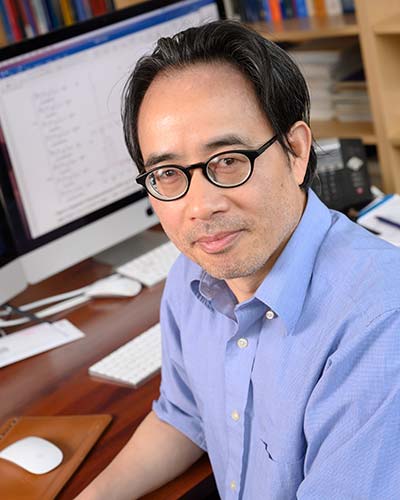
Eugene Chen, Ph.D.
University Distinguished Professor
Colorado State University
Chen received his undergraduate education in China and Ph.D. from The University of Massachusetts, Amherst, in 1995. After a postdoctoral stint at Northwestern University, he joined The Dow Chemical Company in late 1997, where he was promoted from senior research chemist to project leader. Chen moved to Colorado State University in August 2000, where currently he is the John K. Stille Endowed Chair Professor in Chemistry and the Millennial Professor of Polymer Science and Sustainability. His research is centered on polymer science and homogeneous catalysis. In BOTTLE, Chen's team will build off their extensive knowledge of recyclable-by-design bio-based plastics, polyhydroxyalkanoates, and vitrimers, alongside deep expertise in homogeneous catalysis for plastics redesign.
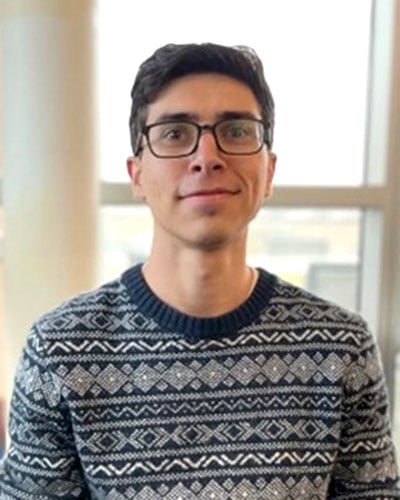
Jason DesVeaux
Techno-Economic Analysis Researcher
National Laboratory of the Rockies
DesVeaux obtained his B.S. in chemical engineering from the University of Colorado Boulder in 2020. Shortly thereafter, he joined the Economic, Sustainability, and Market Analysis team at NLR. His work has focused on the process modeling and techno-economic analysis of plastics deconstruction and redesign technologies. In BOTTLE, DesVeaux and the analysis team will work to evaluate the economic feasibility of technologies across the consortium and highlight key opportunities for research and development.
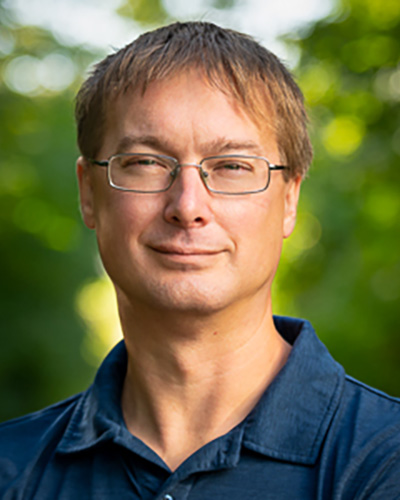
Trevor Dzwiniel
Senior Process R&D Chemist
Argonne National Laboratory
Dzwiniel graduated in 1999 with a doctorate in chemistry from the University of Alberta, Canada, and was a postdoctoral fellow at the University of Wisconsin–Madison. He then worked in pharmaceutical development and scale-up groups for nearly 10 years. Dzwiniel joined Argonne in 2010 to work on upscaling materials for energy storage in the newly formed Material Engineering Research Facility. He currently is a Senior Process R&D Chemist and interim Group Leader in the Applied Materials Division at Argonne. In BOTTLE, he supports the building blocks task.
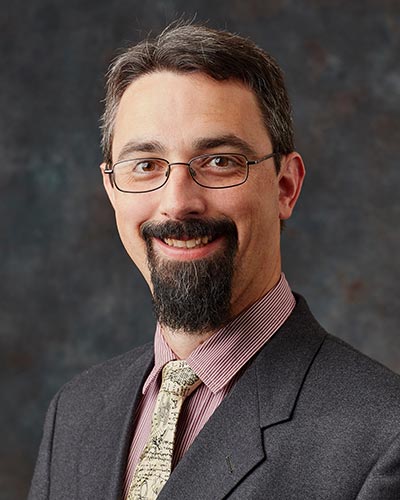
Adam Guss, Ph.D.
Genetic and Metabolic Engineer
Oak Ridge National Laboratory (ORNL)
Guss received his Ph.D. from the University of Illinois at Urbana – Champaign in the Department of Microbiology studying the electron transport pathways used by members of the Archaea to produce methane. He was a Microbial Sciences Initiative postdoctoral fellow at Harvard University studying the phylogenetic and metabolic variety of non-cultured and rarely cultured bacteria present in the lungs of cystic fibrosis patients. He then worked at Dartmouth College as a postdoctoral researcher and research scientist as a member of the BioEnergy Science Center, improving genetic tools and metabolic engineering Clostridium thermocellum for production of biofuels from cellulosic biomass. Guss' current research utilizes genetics and synthetic biology to develop genetic tools for non-model microbes and engineer them to convert lignocellulosic biomass, plastics, and other waste into liquid fuels and other value-added products. He is the team lead for Rapid Domestication of Microbes within the Center for Bioenergy Innovation, and the co-lead for the Host Onboarding and Development Team in the Agile BioFoundry. In BOTTLE, Guss’ team will leverage their expertise in prospecting, non-model microbe engineering, and synthetic and systems biology.
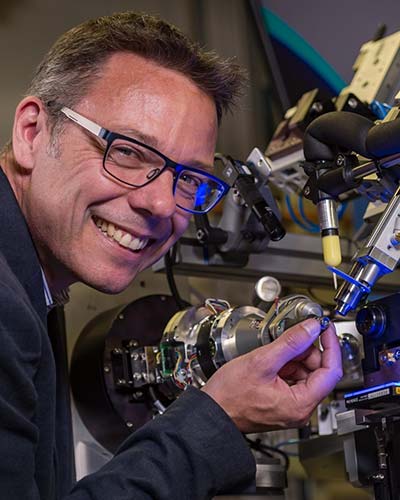
John McGeehan, Ph.D., FRSC
Senior Researcher
National Laboratory of the Rockies
McGeehan obtained his B.Sc. in Microbiology at the University of Glasgow and his Ph.D. at the Medical Research Council Virology Unit in 1996. In 2005 he took up a European Molecular Biology Laboratory fellowship at the European Synchrotron Radiation Facility synchrotron in Grenoble, combining spectroscopy and X-ray crystallography. He returned to the University of Portsmouth in 2007 following the award of a Research Councils UK Fellowship to lead a team in the Centre for Enzyme Innovation. He is a Fellow of both the Royal Society of Chemistry and Biology. In BOTTLE, McGeehan will advise on recycling and upcycling through the processes of enzyme discovery, functional characterization, and structure-led design.
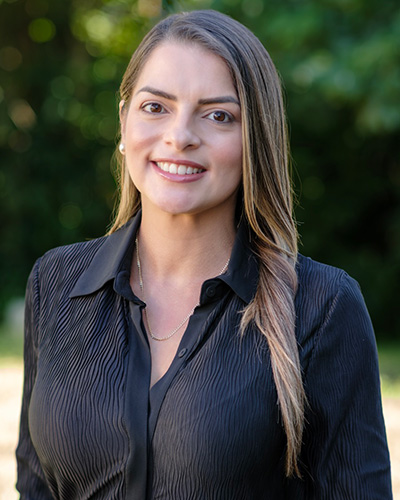
Yomaira Pagán-Torres, Ph.D.
Professor of Chemical Engineering
University of Puerto Rico-Mayagüez (UPRM)
Pagán-Torres obtained her B.S. in Chemical Engineering from UPRM in 2006 and Ph.D. in Chemical Engineering from the University of Wisconsin–Madison in 2011. Her doctorate focused on the development of hydrothermally stable catalytic materials for the conversion of biomass-derived substrates into platform chemicals. Before joining UPRM, she worked as a Senior Engineer for Dow in the Feedstocks and Alternative Technologies R&D group. Pagán-Torres is currently Professor of Chemical Engineering at UPRM, where her research focuses on designing catalytic materials to selectively activate functional groups in carbon-based feedstocks such as biomass, carbon dioxide, and waste plastics to produce platform chemicals and monomers. Her research group's goal is to develop catalytic technologies that enable efficient chemical production while mitigating the impacts of plastic waste. Her contributions have been recognized twice with the UPRM College of Engineering Distinguished Professor Award. In 2024, she was awarded the American Institute of Chemical Engineers Mid-Career Researcher recognition in Catalysis and Reaction Engineering. In BOTTLE, Pagán-Torres' research team will focus on using heterogeneous catalysis and reaction engineering to synthesize novel monomers for recyclable-by-design plastics.
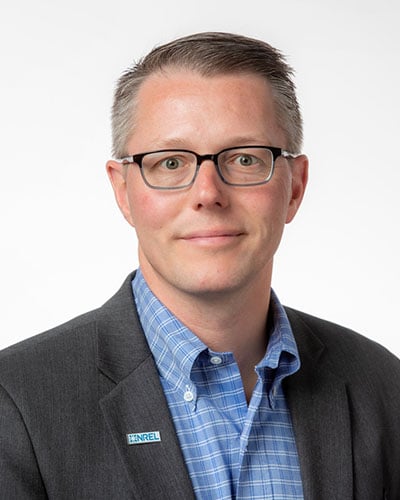
Eric Payne
Senior Licensing Executive
National Laboratory of the Rockies
Payne is a Senior Licensing Executive in NLR's technology transfer office. In BOTTLE, he leads the commercialization of BOTTLE innovations. In managing the BOTTLE IP portfolio, he helps innovators leverage IP protection to maximize the commercial impact of their research through strategic partnerships with industry. In addition to helping researchers commercialize their innovations, he actively helps develop new models to promote public-private partnerships to magnify the impact of DOE support in scientific R&D.
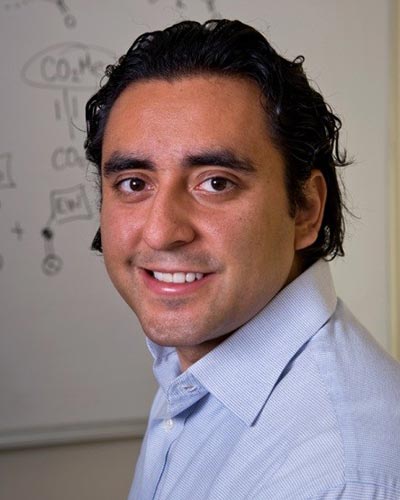
Yuriy Román, Ph.D.
Associate Professor
Massachusetts Institute of Technology (MIT)
Román obtained his B.S. in chemical engineering at the University of Pennsylvania in 2002. He completed his Ph.D. in 2008 at the University of Wisconsin–Madison, also in chemical engineering, working on catalytic strategies to convert biomass-derived carbohydrates into platform chemicals. He then completed a two-year postdoc at Caltech, working on the synthesis of Lewis acidic zeolites and mesoporous materials. Román joined the department of Chemical Engineering at MIT in 2010 and was then promoted to Associate Professor in 2014. His research lies at the interface of heterogeneous catalysis and materials design where a wide range of synthetic, spectroscopic, and reaction engineering tools are applied to study the chemical transformation of molecules on catalytic surfaces. He has received the National Science Foundation Faculty Early Career Development Program, Organic Reactions Catalysis Society Robert Augustine, American Institute of Chemical Engineers Catalysis and Reaction Engineering Division Young Investigator, and American Chemical Society Early Career in Catalysis awards. In BOTTLE, Román’s team will utilize their heterogeneous catalysis, electrocatalysis, and reaction engineering expertise toward plastics deconstruction and upcycling and to make new monomers that are able to be incorporated into recyclable-by-design plastics.
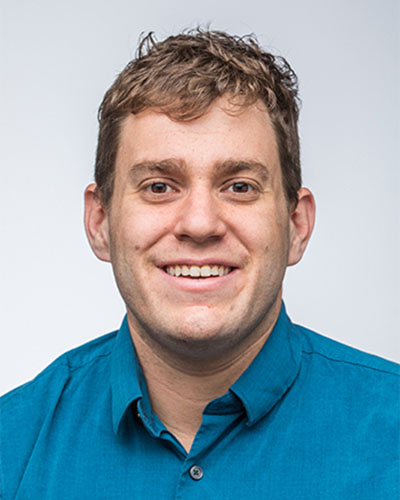
Nicholas (Nic) Rorrer, Ph.D.
Senior Researcher
National Laboratory of the Rockies
Rorrer leads the polymer science and engineering group within the Renewable Resources and Enabling Sciences Center at NLR. He received his Ph.D. from the Colorado School of Mines in 2015 in chemical engineering with a specialty in polymer science. During the last year of his Ph.D. studies, Rorrer came to NLR under the DOE Office of Science Graduate Student Research program as a graduate intern. Following his Ph.D., Rorrer stayed at NLR as a postdoctoral researcher, which subsequently led to his career as a staff scientist at the lab. Broadly, Rorrer’s work focuses on the concept of performance-advantaged bioproducts in which he and his colleagues attempt to leverage the inherent functionality of biomass to enabling better materials performance in the manufacturing, properties, or end-of-life of materials. In the BOTTLE consortium, Rorrer leverages his experience to develop early career scientists.
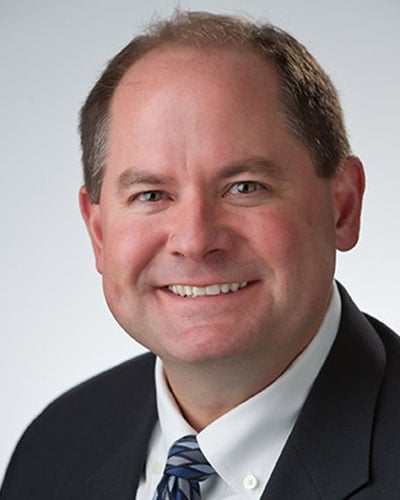
Ron Schoon
Executive Manager, Strategic Partnerships
National Laboratory of the Rockies
Schoon is the Executive Manager for Strategic Partnerships at NLR. He is responsible for lab-wide development of partnerships between NLR and industry. He obtained his B.S. in mechanical engineering and his M.S. in aeronautical and astronautical engineering, both from Stanford University. In BOTTLE, Schoon leads the strategy development and industry engagement for the consortium.

Shannon Stahl, Ph.D.
Professor of Chemistry, Steenbock Professor of Chemical Sciences
University of Wisconsin—Madison
Stahl obtained his B.S. in chemistry from the University of Illinois at Urbana—Champaign in 1992 and then completed his Ph.D. in chemistry at California Institute of Technology in 1997, with Professor John E. Bercaw. After a postdoc at MIT with Professor Stephen J. Lippard from 1997 to 1999, he joined the Department of Chemistry at the University of Wisconsin–Madison. His research focuses on catalysis, with an emphasis on redox reactions, including C-H oxidation and oxidative coupling reactions, aerobic oxidation methods, and electrochemical synthesis. His work on aerobic oxidation catalysis has been recognized by the Mitsui Chemicals Catalysis Science Award, the U.S. Environmental Protection Agency's Presidential Green Chemistry Challenge Award, and the ACS Awards in Affordable Green Chemistry and Organometallic Chemistry. He is an elected member of the American Academy of Arts and Sciences and the National Academy of Sciences. In BOTTLE, Stahl's team is leveraging their understanding of aerobic oxidation catalysis to develop methods for oxidative deconstruction of polymers and to develop efficient synthetic routes to new monomers for incorporation into recyclable-by-design plastics.
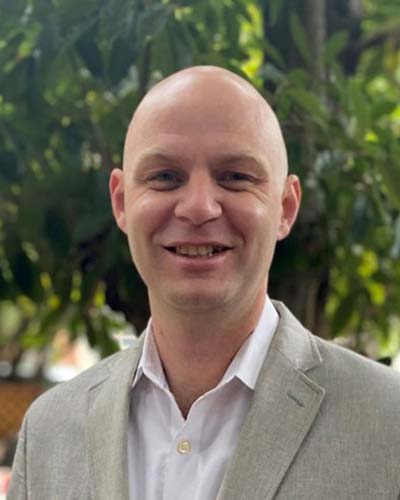
Christopher Tassone, Ph.D.
Staff Scientist
SLAC National Accelerator Laboratory
While working toward his B.S. degree in chemistry at Santa Clara University, Tassone performed undergraduate research with the National Aeronautics and Space Administration Ames Research Center to develop nanoscale water sensors for extra planetary probes. He received his Ph.D. in Physical Chemistry from the University of California, Los Angeles, where he developed methods to control the molecular structure of plastic semiconductors. He has continued to build his toolkit beyond the microscope as a staff scientist at SLAC National Accelerator Laboratory developing advanced methods for characterizing the structure of materials, the pathways by which they form, and the relationships between their structure and performance. He is currently the group leader for the materials science hard X-ray group at the Stanford Synchrotron Radiation Lightsource, which focuses on developing X-ray methods to enable in situ and operando measurements to understand synthesis science, materials at work, and data-driven materials discovery. In BOTTLE, Tassone’s team will apply their expertise at characterizing the structure and in situ behavior of biological, chemical, and materials for deconstruction, reconstruction, and re-design tasks.
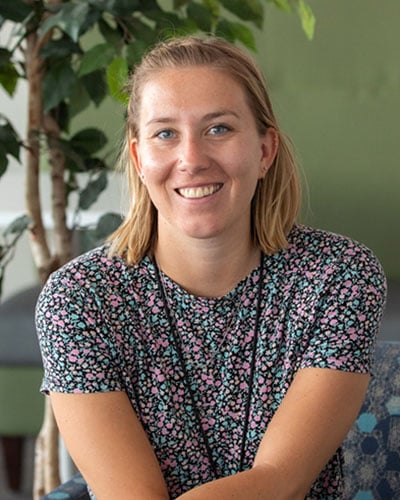
Taylor Uekert, Ph.D.
Intermediate Researcher
National Laboratory of the Rockies
Uekert is an interdisciplinary scientist dedicated to solving waste and resource-related challenges. She has a B.S. in Nanoengineering from the University of California San Diego and a Ph.D. in Chemistry from the University of Cambridge, where she studied photocatalytic systems for converting plastic and mixed waste into hydrogen fuel. Her research at NLR focuses on understanding the life cycle, economic, and social impacts of developed technologies in the plastic, food, chemicals, and hydrogen sectors. In BOTTLE, Uekert co-leads the Analysis Task and uses life cycle assessment to guide innovation for plastic recycling and redesign.
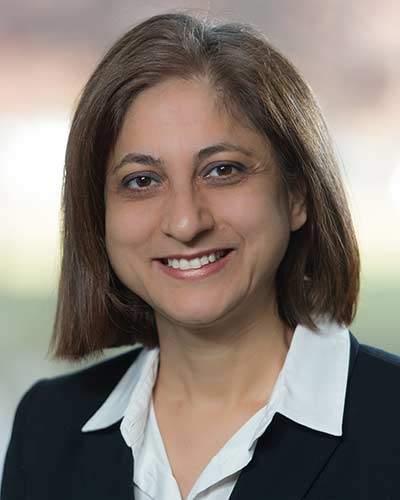
Meltem Urgun-Demirtas, Ph.D.
Group Leader, Bioprocesses and Reactive Separations
Argonne National Laboratory
Urgun-Demirtas leads the Bioprocesses and Reactive Separations group in Argonne's Applied Materials Division. The group focuses on re-engineering of plant flow diagrams to develop innovative technologies for industrial applications as well as development and application of intensified reactor and separation technologies for bioenergy and bioproducts production, water treatment, and manufacturing. She is also a Fellow at the Northwestern and Argonne Institute of Science and Engineering. Urgun-Demirtas has over 20 years of experience in the design and operation of chemical and bioprocesses, development and scale-up of new technologies from bench to pilot and field scale, techno-economic analysis, and modeling of processes. Currently, she serves as Argonne's Program Manager for Bioenergy Technologies Office of DOE which includes life cycle analysis of feedstock and development of new technologies and materials for production of biofuels and bioproducts. In BOTTLE, Urgun-Demirtas' team will conduct end of life testing of plastics in both natural and engineered settings.
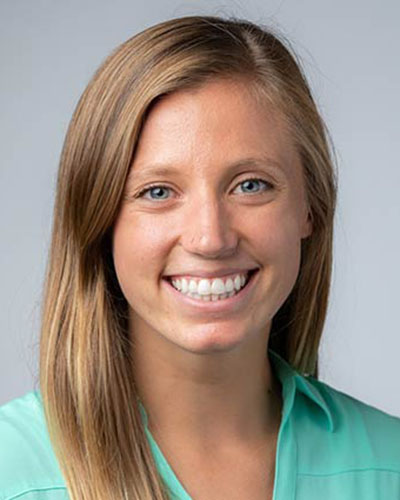
Allison Z. Werner, Ph.D.
Senior Scientist
National Laboratory of the Rockies
Werner is a Staff Scientist in the Renewable Resources and Enabling Sciences Center at NLR where her research focuses on developing microbial chassis for the conversion of low-value and waste feedstocks (e.g., lignin, plastics, and e-waste) into higher value materials and chemicals. Werner received a B.S. in Biomolecular Engineering from the Milwaukee School of Engineering in 2014, a Ph.D. in Cell and Molecular Biology from Colorado State University in 2018, and completed a Postdoctoral Fellowship at NLR before joining as a Staff Scientist in 2021. In BOTTLE, Werner co-leads the building blocks task and a team applying synthetic and systems biology to understand and engineer microbial hosts for the conversion of deconstructed plastics and biomass to chemical precursors (“building blocks”) for performance-advantaged polymers.





